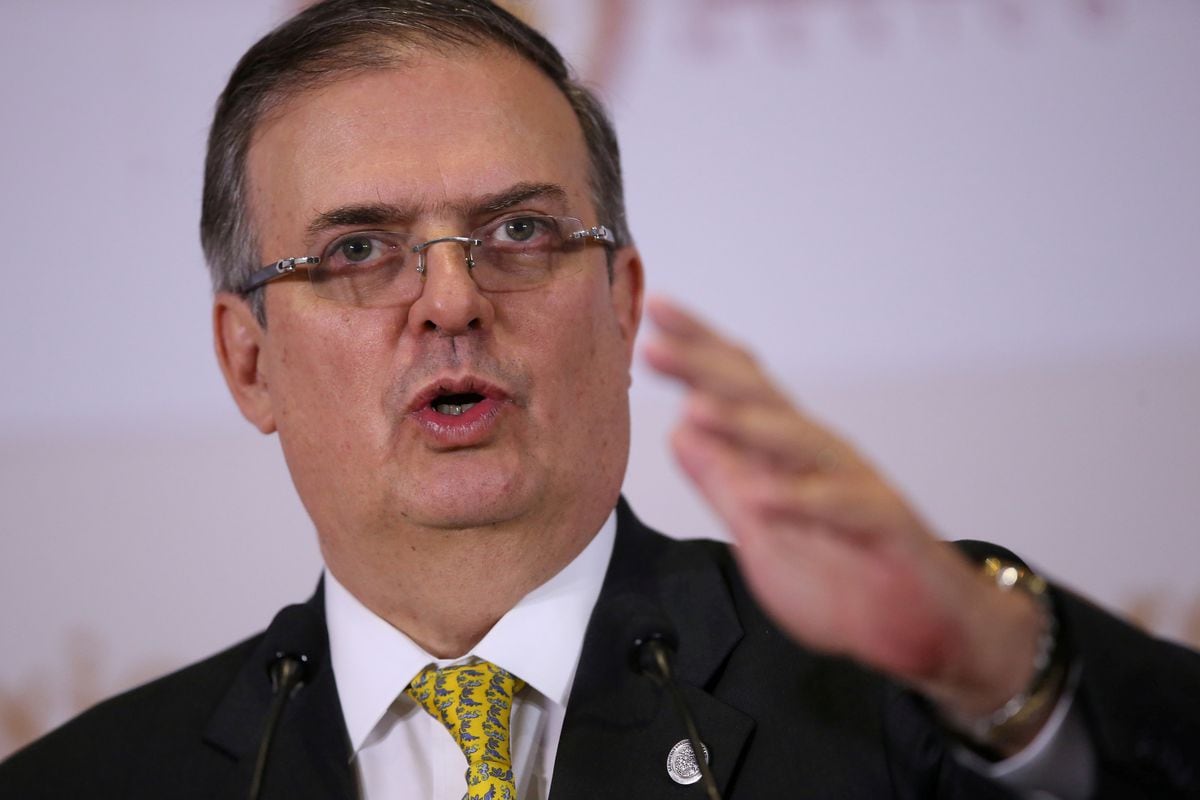The Mexican health authorities have approved the sixth vaccine against covid-19 on Tuesday in an attempt to accelerate the immunization campaign. The approval of the “emergency use” of Covaxin, manufactured in India, coincides with a new step in the diplomatic strategy of the Foreign Minister, Marcelo Ebrard, who hours before had announced that he will travel to China and Russia to ensure the shipment of the committed lots. On March 24, the pharmaceutical company Bharat Biotech sent information about this drug to the Federal Commission for the Protection against Sanitary Risks (Cofepris), which has finally obtained a seal of “quality, safety and efficacy”. The authorization comes after months of delays in receiving the vials and when the country, with a population of almost 130 million, is about to reach 10 million doses applied.
Ebrard himself has celebrated the Cofepris decision to expand the options against the coronavirus. Mexico administered the first vaccine in Latin America last Christmas and then lagged behind the initial plans and, above all, its northern neighbor, the United States, which as of April 19 will allow all adults to make an appointment to be immunized . Covaxin joins the other five licensed drugs, from AstraZeneca, CanSino, Sinovac, Pfizer and Sputnik V.
This Tuesday in the country more than 308,000 vaccines have been applied and, in total, the doses administered are close to 9.7 million. The Government of Andrés Manuel López Obradror set itself the goal of immunizing all those over 60 years of age before the end of April, but today the Chancellor has warned that “the degree of difficulty of access to vaccines is growing.” “The main producing countries are entering or are already in intensive, massive, vaccination phases […]. Inequality in access has also been accentuated, there are many countries that still do not have access, incredible at this date ”, he stated.
Mexico has received just over 15 million vials to date and, according to the latest report from the International Monetary Fund (IMF) published this Tuesday, it is, however, an exception in Latin America along with Chile and Costa Rica. However, the population and challenges of these two countries are not comparable to those of the Mexican government. In this context, according to Ebrard, it is necessary to launch “an activism aimed at not delaying the agreements already signed, agreed and even paid the corresponding advances”.
With these premises, the Foreign Secretary will travel to Russia and China to try to guarantee the shipments of more than 24 million doses of the Russian Sputnik V vaccine and 34 million of the Chinese CanSino. The head of diplomacy will also visit India, all the more so after the approval of the new drug. And also Washington. “Of course, the United States for obvious reasons is the country with which we have the most relationship. They are going at a good pace in their vaccination, it is very important to us that they continue to support us ”, he added.
The request for a more equitable distribution of vaccines was one of López Obrador’s central demands to the US president, Joe Biden, in their first bilateral meeting held in early March. That appointment was followed by weeks of intense negotiations and by the end of the month a 1.5 million batch of AstraZeneca arrived in Mexico, the first shipment that Washington made to another country.
The fight against the pandemic led by the Mexican president has received many criticisms since the beginning of the health emergency, just over a year ago. The country, the third most affected by the pandemic in the world, has since registered more than 205,000 deaths, according to official data, but even the Ministry of Health recognizes that the underreporting has been enormous and ended up recognizing that excess mortality can exceed 60%. To this is added the behavior of the president himself, who has always refused to wear a mask and threatened to delay his vaccination for having overcome the disease and having enough antibodies. Finally, this Tuesday he has rectified by noting that the first dose will be applied in two or three weeks to “set an example.”
The Government seeks, in this context, to recover and since the beginning of 2021 it has done so by promoting a kind of vaccine diplomacy that benefits not only Mexico and its population, but also with the purpose of gaining international weight and becoming a reference within of the region to address and negotiate with the bloc of developed countries. Ebrard was precisely the politician who led the protest at the United Nations for an unequal distribution of medicines.
Subscribe here to newsletter of EL PAÍS México and receive all the informative keys of the current situation of this country
–


